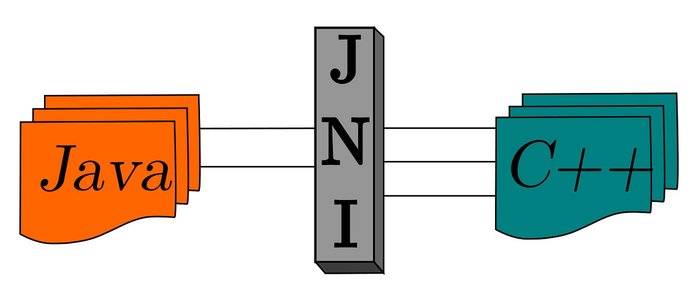Introduction to Anti-Cheating Apps
In the dynamic world of online gaming, maintaining fair play is paramount. Cheating not only disrupts the gaming experience but also undermines the integrity of competitive play. Enter the anti cheating app—a specialized solution designed to detect and prevent unfair practices in games. This guide delves into the significance, functionalities, and benefits of these applications, ensuring gamers enjoy a level playing field.
Understanding the Need for Anti-Cheating Solutions
Cheating in games manifests in various forms, from aimbots and wallhacks to speed hacks and resource manipulation. Such practices can deter genuine players, leading to decreased user engagement and revenue loss for developers. Implementing robust anti-cheating measures is essential to preserve game integrity and player trust.

Key Features of Anti-Cheating Apps
Modern anti-cheating applications are equipped with advanced features to combat diverse cheating methods:
▪ Real-time Monitoring: Continuously scans for suspicious activities during gameplay.
▪ Behavioral Analysis: Detects anomalies in player behavior indicative of cheating.
▪ File Integrity Checks: Ensures game files remain unaltered and authentic.
▪ Emulator Detection: Identifies and restricts gameplay on unauthorized emulators.
▪ Cloud-based Updates: Regularly updates cheat databases to counter new threats.
Anti Cheating App for Android: Mobile Gaming Security
With the surge in mobile gaming, Android platforms have become prime targets for cheaters. An anti cheating app for Android offers tailored solutions to address mobile-specific threats:
▪ Root Detection: Identifies devices with root access, often used to bypass security measures.
▪ App Tampering Prevention: Protects against unauthorized modifications to game applications.
▪ Secure Network Communication: Encrypts data transmission to prevent packet sniffing and manipulation.
▪ Lightweight Performance: Ensures minimal impact on device performance and battery life.
Anti Cheating App for iOS: Apple Ecosystem-Specific Challenges
While iOS is often perceived as more secure due to its closed ecosystem, cheating in iOS games still exists—particularly through jailbroken devices, proxy manipulation, and memory injection tools. An effective anti cheating app for iOS must take into account the platform's unique architecture and constraints:
▪ Jailbreak Detection: Identifies compromised devices that could allow unauthorized code execution.
▪ Memory Access Control: Monitors unauthorized memory editing attempts during gameplay.
▪ Code Injection Prevention: Blocks third-party apps or debuggers from altering runtime behavior.
▪ Device Integrity Verification: Ensures the iOS environment is untampered and adheres to Apple's security model.
JikGuard’s solution is compatible with both Android and iOS, offering a cross-platform defense framework without requiring invasive SDK integration. For iOS developers, this means game protection can be implemented without breaching Apple’s strict app review policies, while maintaining robust defense against modern cheats.

Free Anti Cheating App: Misconceptions and Reliable Alternatives
While the idea of a free anti cheating app is attractive, it's important to understand its limitations. Many of these tools offer only basic protection and lack the sophistication needed to combat modern cheating techniques. Fully free or open-source solutions often suffer from:
▪ Limited Detection Capabilities: Unable to identify advanced and evolving cheat tools.
▪ Irregular Updates: Vulnerable to newly developed cheats due to slow patching.
▪ Minimal Support: Developers often lack access to expert assistance or timely troubleshooting.
▪ Poor Integration: May not work well with complex or high-performance games.
Instead of relying on these basic tools, developers can explore JikGuard’s free trial, which offers enterprise-grade protection at no initial cost. Benefits of the JikGuard free trial include:
▪ Access to Core Features: Includes real-time scanning, file integrity checks, and behavioral analytics.
▪ Cloud-driven Threat Intelligence: Leverages an ever-evolving database of known and emerging threats.
▪ Zero SDK Integration: Simplifies the implementation process, requiring no additional software development kits.
▪ Full Technical Support: Access to expert teams for consultation and troubleshooting.
Implementing Anti-Cheat Measures: Best Practices
Effective anti-cheat strategies involve a combination of technological and procedural approaches:
▪ Server-side Validation: Processes critical game logic on secure servers to prevent client-side manipulation.
▪ Regular Updates: Keeps security measures current with evolving cheating techniques.
▪ User Reporting Systems: Empowers players to report suspicious activities, aiding in cheat detection.
▪ Legal Enforcement: Establishes clear policies and consequences for cheating, deterring potential offenders.
Conclusion: Upholding Fair Play in Gaming
As the gaming industry continues to evolve, so do the methods employed by cheaters. Implementing robust anti-cheating solutions is not just a technical necessity but a commitment to fair play and community trust. Rather than relying on simple, fully free tools, developers are encouraged to explore professional-grade solutions like JikGuard's free trial—blending accessibility with cutting-edge protection. Whether on mobile or PC, a reliable anti cheating app remains the frontline defense for game integrity and long-term success.


































